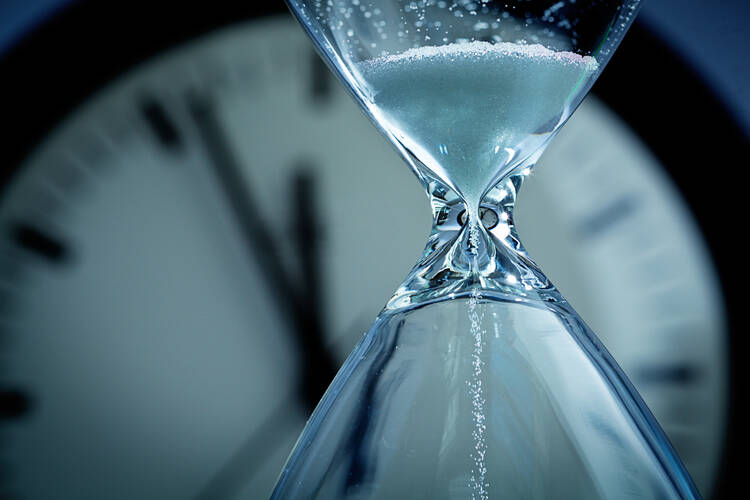“So too, you also must be prepared, for at an hour you do not expect, the Son of Man will come.” ~ Mt 24:.44
As Hurricane Matthew swirled towards the southeastern coast of the United States, our preparations kicked in. Batteries, canned goods, water: we knew what we needed and approximately when we would need it. But how do we prepare for an event—the coming of Christ—whose date we cannot know? None of us truly understands what it means that “the Son of Man will come,” nor can we pinpoint the day when his kingdom will be fully realized. There is no specific strategic action for us to take here. Rather, we are called to develop habits that will make us and keep us spiritually fit and ready. First among these is the habit of prayer. While it may be a stretch for us to pray unceasingly, as St. Paul counsels in 1 Thessalonians, most of us can find a way to pray regularly. Consider the electric toothbrush. Its built-in two-minute timer frees the user to focus on the act of brushing rather than on the passage of time. We might profitably adopt such a mechanism as we strive this Advent to prepare for Christ by deepening our prayer life. The simple act of setting a smartphone or a kitchen timer to five minutes—or ten, or twenty—will allow us to be fully present as we pray. Within the frame of those five minutes—or ten, or twenty—we can express regret, give thanks, ask a favor, pray for those we love. We may not know when He will come, but we can prepare the way within our hearts by the daily practice of prayer.
Lord Almighty, Master of time, help me faithfully to set aside a few moments for prayer each day of Advent, so that I may be ever ready to welcome you. Amen.
For today’s readings, click here.
RELATED: Read all of our Advent reflections for 2016
Elizabeth Kirkland Cahill is an author, lecturer and Biblical scholar. She is the co-author, with Joseph Papp, of Shakespeare Alive! (Bantam Books), and is a contributor to Commonweal and America.








